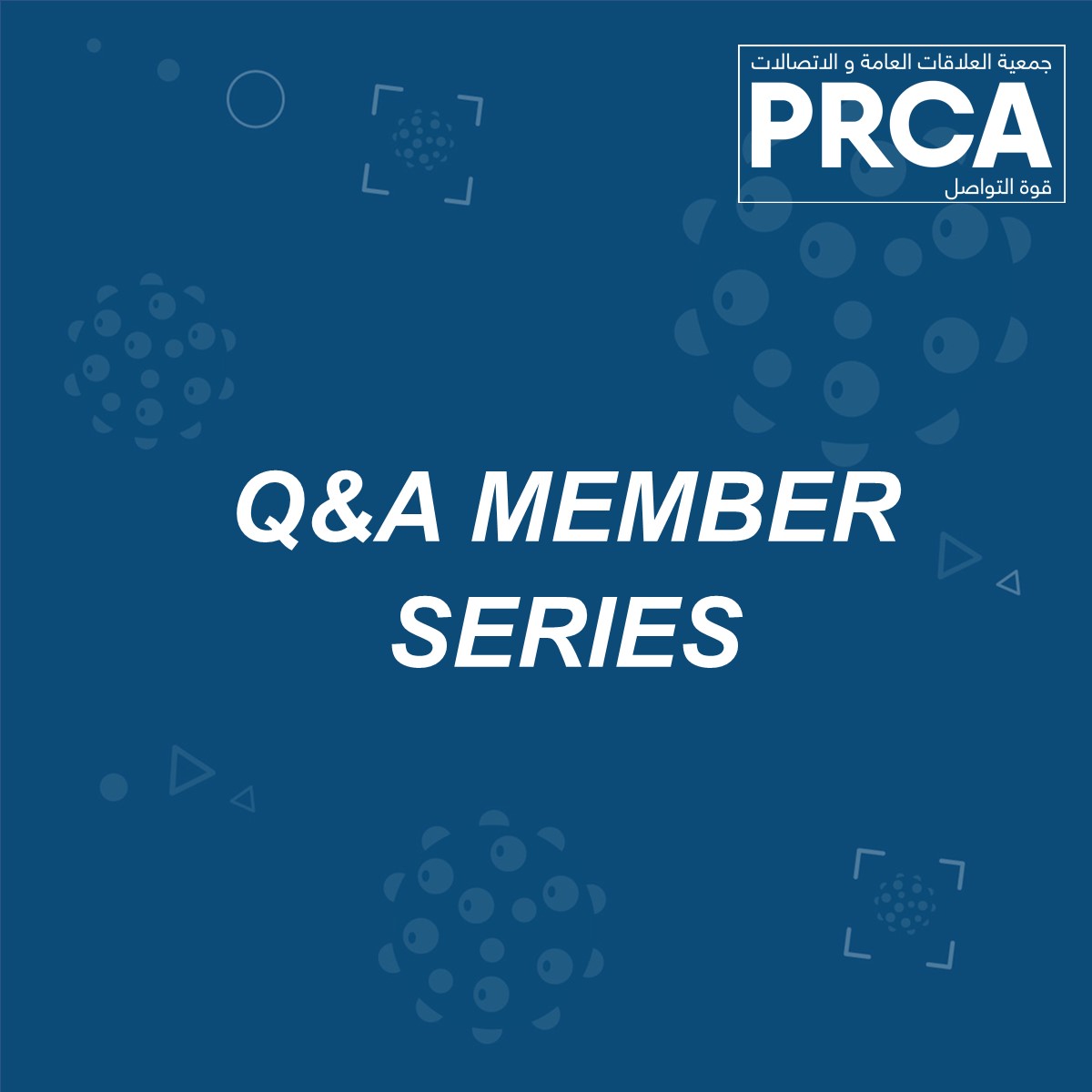COVID-19 Q&A MENA Series with Cicero & Bernay Public Relations
The COVID-19 crisis has had a profound impact on public relations professionals across the world. Despite the ongoing uncertainty, communications are playing an essential role connecting stakeholders and helping organisations to make sense of their new environments. Messaging and communication have never been more critical to business.
This exclusive Q&A series spotlights the communications professionals behind the organisations working the COVID-19 crisis.
This week features answering the PRCA MENA Q&A series Tariq Al Sharabi, Managing Director, Cicero & Bernay Public Relations
- How has the COVID-19 crisis affected you and your organisation?This past phase, we collectively felt a distinct sense of togetherness at the agency that, though had always been there, was made pronounced and even stronger. Every one of us came together, and within the first few days, the true essence of our bond and sense of family was made apparent.
Undergoing the challenges of the pandemic also granted us a unique opportunity to tackle an unprecedented situation through sheer creativity. We instantly adopted a proactive role to consult our clients and help navigate them through these uncharted waters. In the end, our team’s ingenuity was put to the test, and we are proud and humbled to be where we are today.
- How should businesses communicate with stakeholders during the current crisis? What are the key things to bear in mind?Transparency and an open line of communication are practices that cannot be understated, let alone during crises of this nature. Businesses must consistently commit to listening to and being aware of stakeholders in an effort to underpin the need for empathy at a time when they also are not certain what tomorrow will bring.
Additionally, a brand must be flexible in dealing with different scenarios and set aside its commercial plans to take the time to emphasise people’s benefits as well as consider the role it can play in supporting society and the nation as a whole as best as it is able to.
- How can organisations safeguard their reputation during this period?Similar to what was covered in the preceding question, it is on organisations to support the society and be flexible to withstand any challenge in the service of its stakeholders and the nation at large; the most important values are those centred around people and their well-being.
Being proactive and anticipating upcoming changes are the best ways for a company to pave a path of trust and loyalty with its customers. Business growth will happen over time — what’s important is that stakeholders are continuously prioritised and empathised with at all times, especially during crises that force everyone to stand their ground.
- Do you have any thoughts on how organisations ought to communicate with employees during the present crisis?
Organisations should stay close to their employees by increasing the amount of time they communicate with them and involving them in the company’s day-to-day. An open dialogue, whether for work or personal reasons, must be maintained to consolidate the human element and remind them that though most of them may be working remotely, they are not alone. Empathy and understanding will nurture a much-needed sense of belonging in employees that is now more important than it ever was.
- Do you have any tips on how to protect and promote mental well-being amongst staff at this time?Of all the lessons I have acquired across my career on how best to build a team and empower them, the one that always rises above all in the importance of reminding them of their value and reinforcing them during their moments of doubt. Every individual team member brings something unique to the mix and is, in turn, a valuable addition; though their accomplishments are celebrated, they sometimes lose heart. When that happens, I seek ways to re-engage with them and have them take part in the formation of the agency’s bigger picture as their performance is directly proportional to their happiness and satisfaction.
- Can you share any examples of organisations delivering positive community-led or social campaigns over the past couple of months?I believe that Amazon strengthened its influence in the market and as a brand during the COVID-19 pandemic by prioritising customers over profits during these difficult times. It even went one step further by doubling down on its CSR efforts, consolidating its customer trust and focusing on the human element at a time when people needed it the most.
- In what ways (if any) will this crisis impact the way communications professionals work in the long-term?
This crisis changed everything from the way people operate to the way they communicate. Evolution happens over time, but in the face of this pandemic, we were all forced to adopt new tactics and habits and reinvent how we approach our professions. I do not anticipate any of these changes to be temporary. The business world has forever been altered, and the sooner we adapt to it, the sooner we will get back to progressing.
- If you could share any advice with yourself before this crisis began, what would it be?
Keep doing what you’re doing and don’t let anything get you off-track, especially because you have a team that is standing with you and is tenacious enough to face any challenge that comes their way. Maintain your trust and faith and everything will fall in place exactly as it was designed to, no matter the circumstance.




